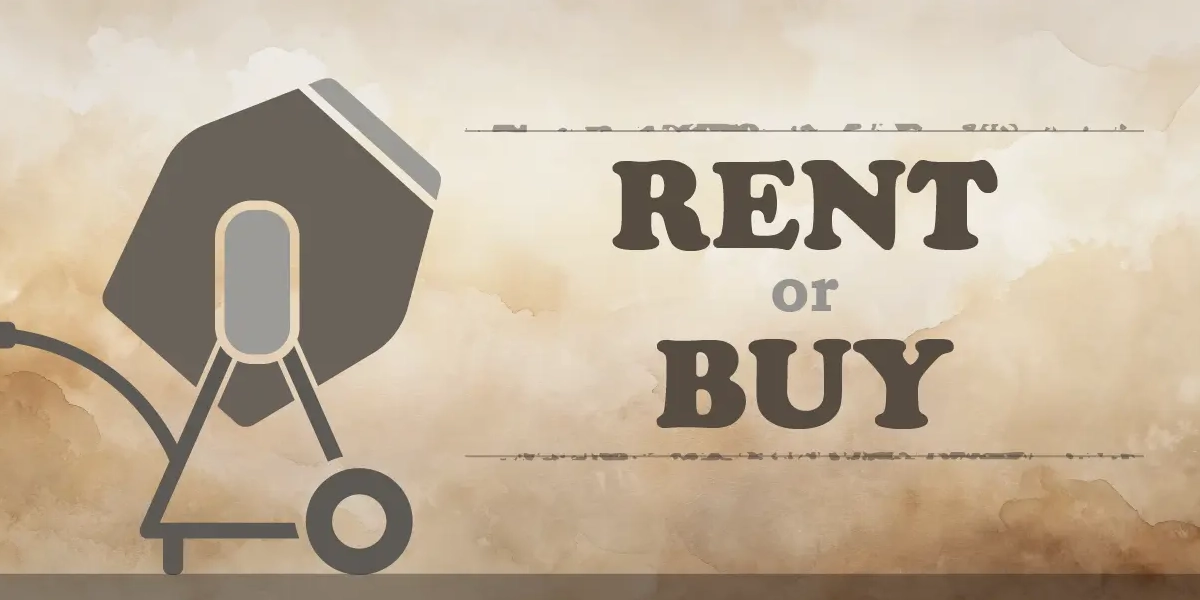DIYers love tools. They collect them like squirrels gathering nuts for the winter — there can never be enough.
But while owning every tool under the sun sounds appealing, is it practical? Renting tools instead can save space, money, and stress, especially for the tools you’ll need only occasionally.
Here’s a breakdown of the tools and equipment that, for the average homeowner, are usually better rented than purchased.
Why Renting Beats Buying for Certain Tools
- High-quality tools can be expensive. Renting removes the steep upfront costs.
- Some tools are difficult to store. Renting eliminates the need to clear space in your shed or garage.
- Tools require upkeep. By renting, you avoid the hassle of repairs, oiling, or blade replacement.
- If you’ll use a tool only once or twice a year, renting is typically the more logical option.
Now that we’ve covered the “why to rent” part, let’s move on to the “what.”
Tools to Rent, Not Buy
1. Power Washers
Power washers are unbeatable for cleaning driveways, patios, and siding. But unless you’re pressure-washing your property multiple times a year, you’re better off renting one for the occasional deep clean.
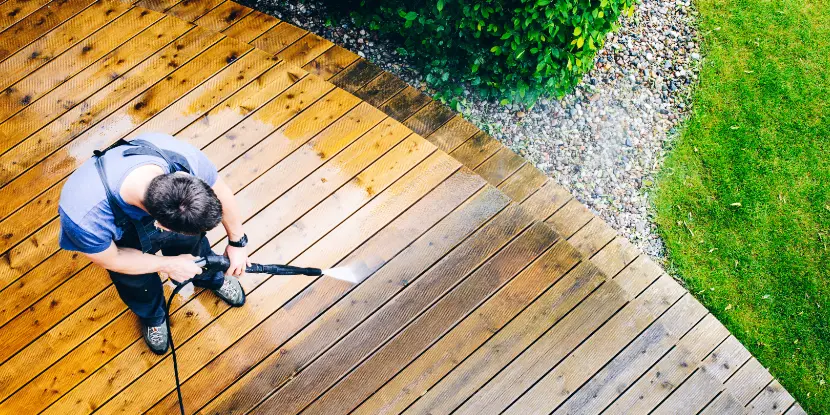
Unless you’re pressure-washing your property multiple times a year, you’re better off renting a power washer for the occasional deep clean.
2. Tile Cutters
Tile cutters are expensive and rarely used after the tiling project is complete. Renting ensures you get professional-grade equipment without the hefty price tag.
3. Lawn Aerators
A lawn aerator reduces compaction to keep your lawn healthy. But do you plan to aerate every weekend? Aerators are big and bulky. Renting one each spring saves you from purchasing a single-purpose item that’ll collect dust in the shed.
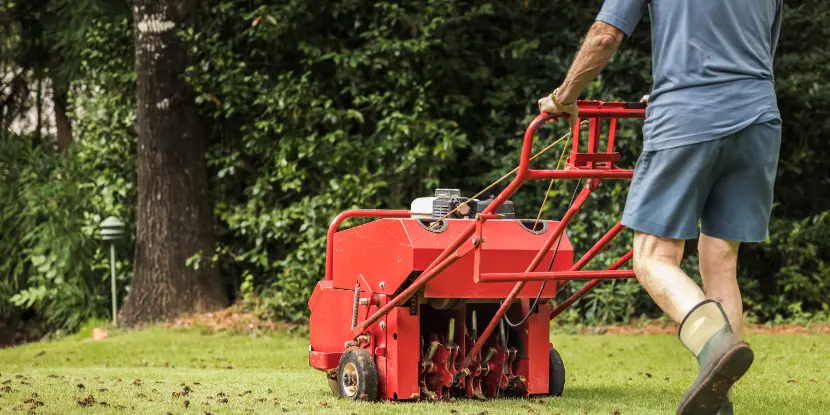
Aerators are big and bulky. Renting one each spring saves you from purchasing a single-purpose item that’ll collect dust in the shed.
4. Concrete Mixers
Seriously, do you plan to store a cement mixer in the garage? Once you’ve poured your new patio or walkway, what will you do with a pricey piece of equipment you may never use again? Rent, rent, rent.
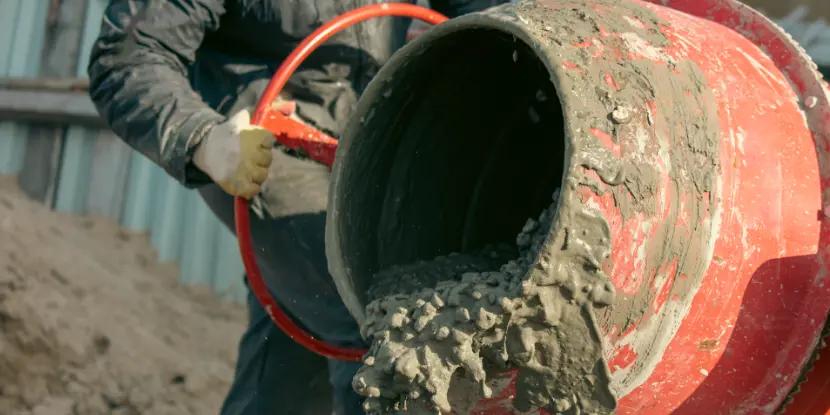
Do you plan to store a cement mixer in the garage? Rental is the best option.
5. Carpet Cleaners
Buying a carpet cleaner makes sense for large households, but renting may be better for smaller homes and apartments. Many hardware stores offer industrial-quality carpet cleaners that are far more effective than consumer-grade alternatives.
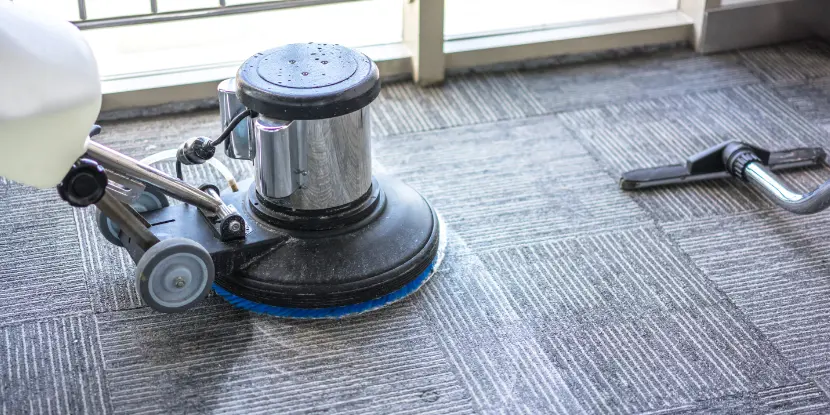
Many hardware stores offer industrial-quality carpet cleaners that are far more effective than consumer-grade alternatives.
6. Scaffolding
Scaffolding is a safer and more stable alternative to ladders for painting high ceilings or exterior walls. However, owning scaffolding is a wasteful luxury unless you’re a contractor with frequent projects at height.
7. Power Post-Hole Diggers
A post-hole digger is a must for projects like building fences or installing a mailbox, but it’s a prime example of a tool you’ll use rarely. Renting saves money and prevents clutter.
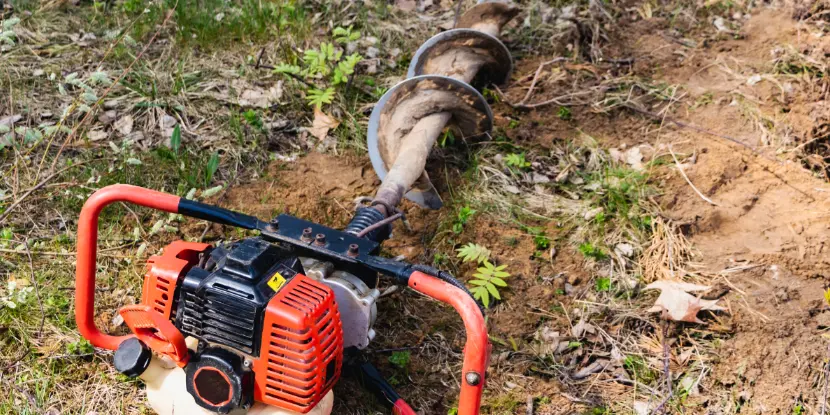
A post-hole digger is a prime example of a tool you’ll use rarely.
8. Floor Sanders
Are you planning to refinish your floors? A floor sander is expensive, especially for a one-time job. Rent one and get smoother, professional-level results from a higher-quality machine.
9. Roofing Nailers
A roofing nailer helps you get the job done fast, but it’s not a tool you’ll use often. If you’re tackling a small construction project or a one-off roofing repair or installation, renting is the way to go.
10: Chainsaws
Owning a chainsaw makes sense if you’re frequently cutting trees or firewood. Otherwise, renting one when needed avoids the cost and responsibility of maintenance (and proper storage).
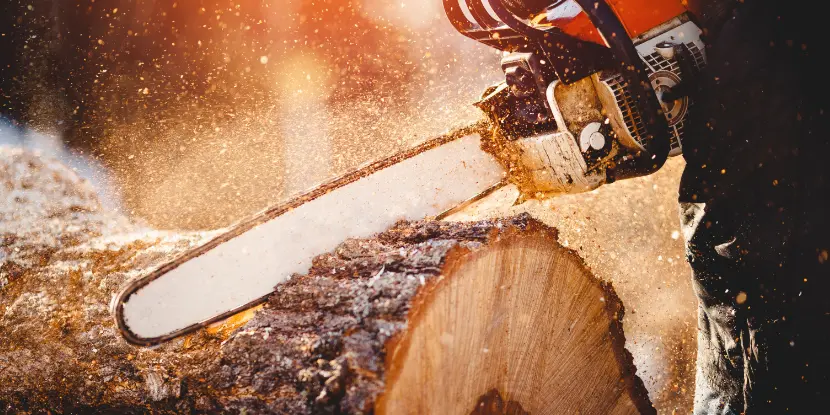
Unless you’re clearing acreage or cutting lots of firewood, you may want to rent a chain saw instead of buying.
11. Heavy-Duty Dehumidifiers
Post-flood cleanup or water damage requires a professional-grade dehumidifier. These machines are pricey and take as much space as a dishwasher. Rent one for the one or two times you’ll need it — with luck and vigilance, you’ll never need one.
12. Paint Sprayers
Paint sprayers provide a flawless finish in a fraction of the time it takes with brushes or rollers — but they’re messy, costly, and require significant cleaning and maintenance after each use. Renting one is a no-brainer for occasional big painting projects.
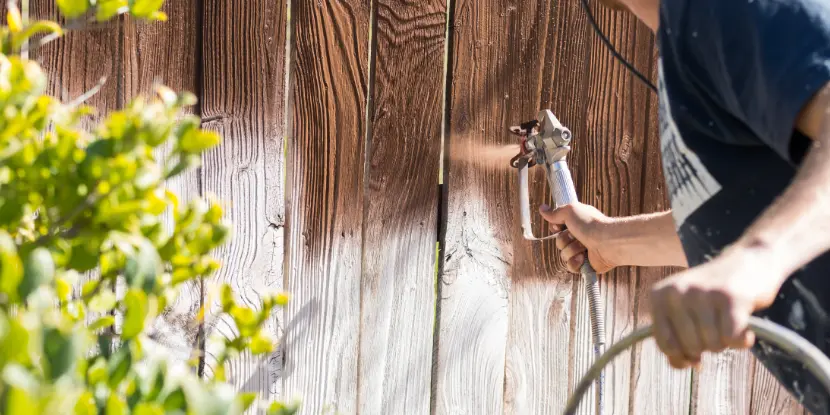
Paint sprayers make big jobs easier, but how often do you tackle big painting jobs?
13. Rototillers
Preparing large garden beds manually or breaking up soil is exhausting without help. A power tiller makes the task much more manageable. Don’t rush out to buy — consider renting one for the weekend.
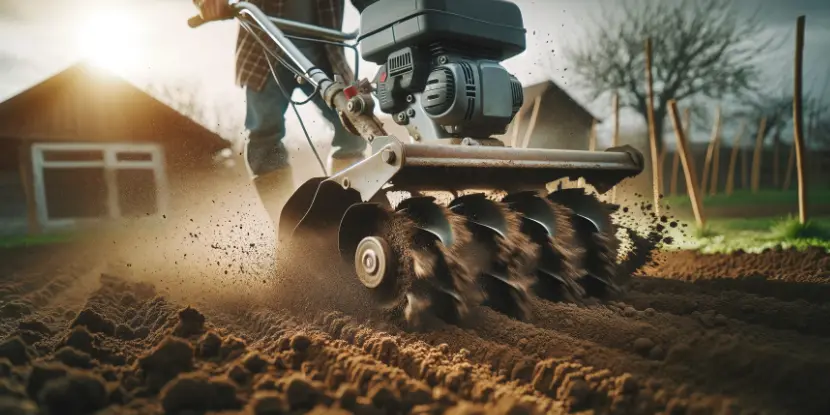
A power tiller makes the task of preparing a garden bed much more manageable.
14. Wood Chippers
A wood chipper makes short work of tree branches and shrubs and converts them into mulch. But only a landscaper or arborist needs one regularly. Renting a wood chipper for a day is far more affordable than purchasing and maintaining one.
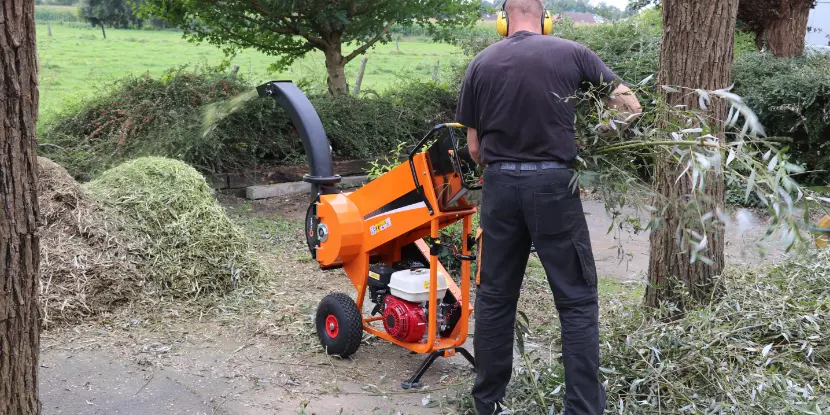
Only a landscaper or arborist needs a wood chipper regularly.
15. Post-Pour Concrete Grinders
A grinder smooths out imperfections in newly poured concrete. But how often do you pour concrete? Rent a grinder. As a bonus, most rental companies will demonstrate proper use, ensuring your job looks professional.
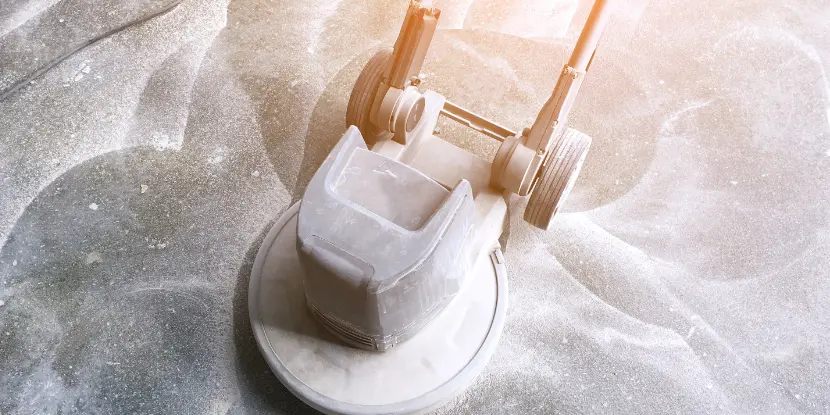
A grinder smooths out imperfections in newly poured concrete. But how often do you pour concrete?
Additional Benefits of Tool Rentals
- Renting gives you access to the tool or model best suited for your project. You can rent higher-quality versions than you could afford to buy, and you can upgrade to a different tool for your next job.
- Not sure if you’ll use that expensive tile saw enough to justify owning it? Renting lets you try it out before making a significant investment.
- Renting often comes with advice or instructions from professionals working at the rental store.
- Renting declutters your garage or shed and frees up space for other items.
- By renting, you’re not contributing to the production of seldom-used tools that may end up in landfills.
Where to Rent Tools
- Larger hardware stores like Anawalt Lumber usually carry a selection of power tools and equipment to rent.
- Equipment rental companies like Sunbelt Rentals offer a wider range of tools and heavy equipment for rent, often with delivery options.
- Local rental companies may offer competitive pricing and personalized advice.
FAQs: Tools to Rent
Q: How much does it cost to rent tools?
The cost varies depending on the type of tool used and the duration of rental. Some companies charge hourly rates, while others have daily or weekly rates. Ask about any additional fees or deposits required when renting.
Q: Can I rent specialized or industrial-grade tools?
Many rental stores offer a variety of tools for different skill levels and projects.
Q: Do I need insurance when renting tools?
Most rental companies offer insurance coverage as part of their rental agreement. However, you should clarify this with the company before renting and consider purchasing additional coverage.
Q: What should I do if the rented tool breaks or malfunctions?
Most rental agreements include policies for damages or malfunctions. If the tool breaks during normal use, contact the rental company immediately. Depending on the terms, they may provide a replacement or repair the tool at no extra cost.
Q: How do I know which tool is best for my project?
Rental stores often have knowledgeable staff to help you select the right tool. Be prepared to describe your project and ask for recommendations.
Q: Can I extend the rental period if I need the tool longer?
Most companies allow rental extensions, but you should inform them as soon as possible to avoid late fees or scheduling conflicts. Some companies also offer discounted rates for more extended rental periods.
Q: Do I need to clean the tool before returning it?
It’s a good practice to clean rental tools before returning them to avoid additional cleaning fees. Confirm the rental company’s cleaning policy when you pick up the tool.
Q: Are there discounts for renting multiple tools or for frequent rentals?
Many rental companies offer discounts for bundling tools or for customers who rent regularly. It’s worth asking about specials, loyalty programs, or seasonal promotions.

